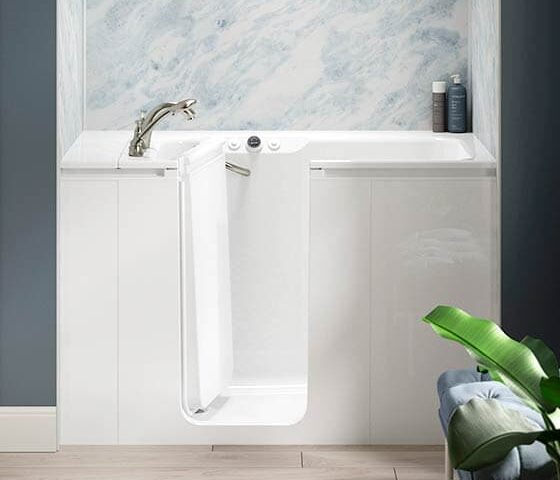Late-summer help for flowering perennials
(Pictured: To divide perennial plants into smaller sections, use a sharp spade or garden knife. Photo credit: Corona Tools)
By Melinda Myers
Overcrowded, poor-flowering and floppy perennials can be invigorated with a shovel and a bit of your time and energy. Dividing perennials is an excellent way to improve their appearance and create new plants to use in other spaces in your landscape.
Divide spring flowering perennials in late summer or early fall, divide fall bloomers in spring, and summer blooming perennials in either spring or fall. Some gardeners prefer to enjoy the spring blooms and divide soon after the flowers fade. Most gardeners have found the best time to divide is when they have the time and can provide proper post-transplanting care.
Reduce the stress on plants by dividing perennials on a cloudy, overcast day when the plants won’t dry out so quickly. Make sure they are well-watered a day or two in advance of dividing.
Dig up the whole plant using a garden fork or sharp spade. A shovel with a long handle and narrow blade makes it easier to access plants in small and hard-to-reach spots. Carefully lift the plant out of the soil. Depending on the plant and the tenacity of its roots, you may be able to gently pull the roots apart with your hands. Otherwise, use a sharp spade or knife, or a reciprocating saw to cut the plant into smaller sections. Some gardeners place two garden forks back-to-back in the center of the clump and pull the forks apart to make the divisions.
Discard the dead center, if needed, in the compost pile. Make sure each division has at least three to five healthy shoots and adequate roots. The larger the division, the quicker it will fill in the space and possibly need dividing sooner than smaller divisions.
Replant the divisions as soon as possible. In the meantime, store them in a cool, shaded location and keep the roots covered and moist.
Prepare the soil before planting. You can plant one of the divisions in the original spot once the soil is amended. Use the others to fill in bare areas or start new garden beds. Plant the division at the same depth it was growing. Some gardeners set it slightly higher so it can settle in place. Either way, make sure the roots aren’t exposed and the crown, the part where the roots meet the stems, isn’t buried.
Gently firm the soil around the plant and water thoroughly. Check the soil moisture every few days and water deeply and often enough to keep the roots slightly moist. Reduce your watering frequency as the plant begins to develop a more robust root system.
Start by dividing just one or two overgrown plants. As you master the technique, you’ll find it easier to divide perennials when needed to keep your gardens looking their best.
Melinda Myers (melindamyers.com) has written more than 20 books, hosts a video series, and has TV and radio programs on gardening.



